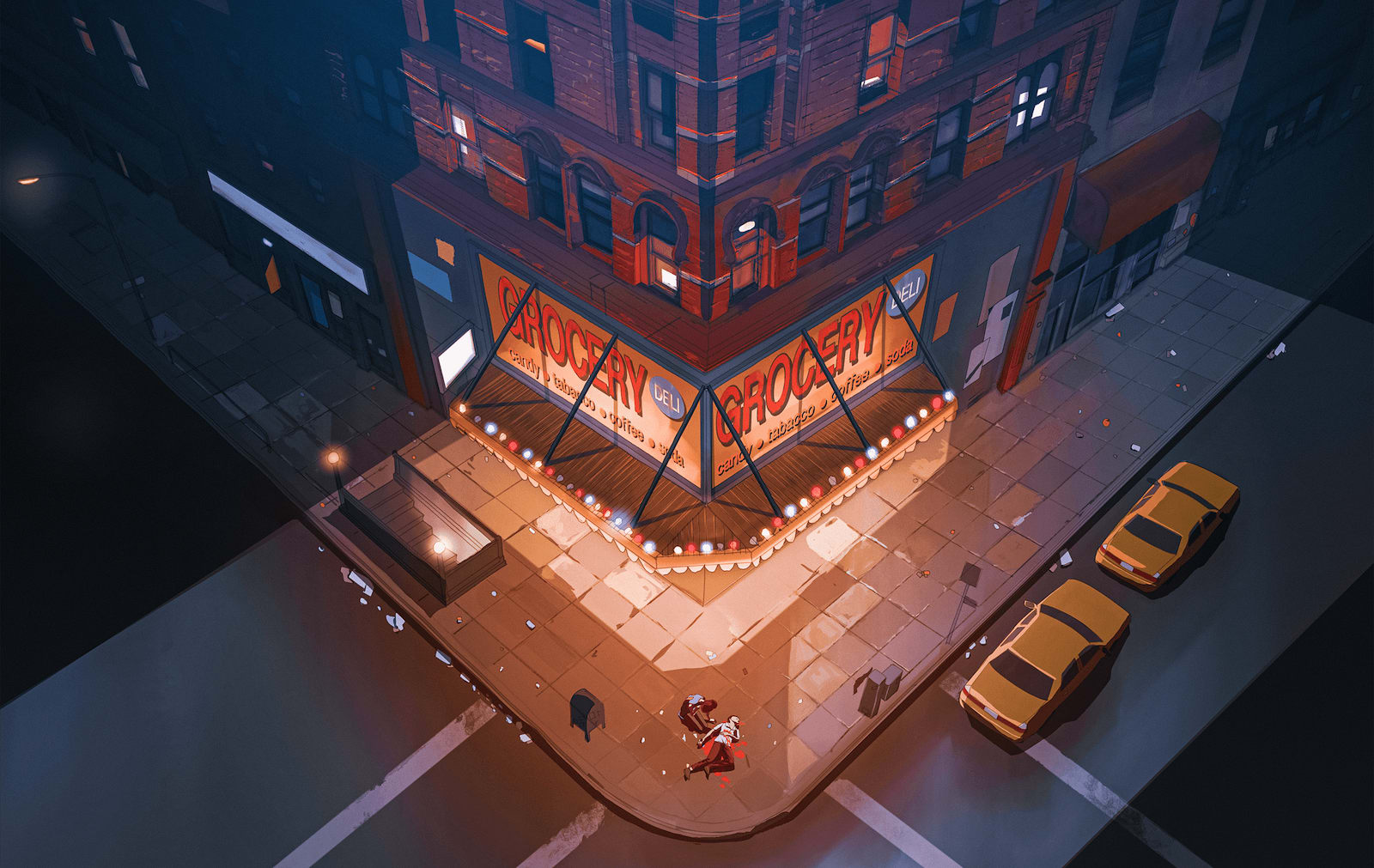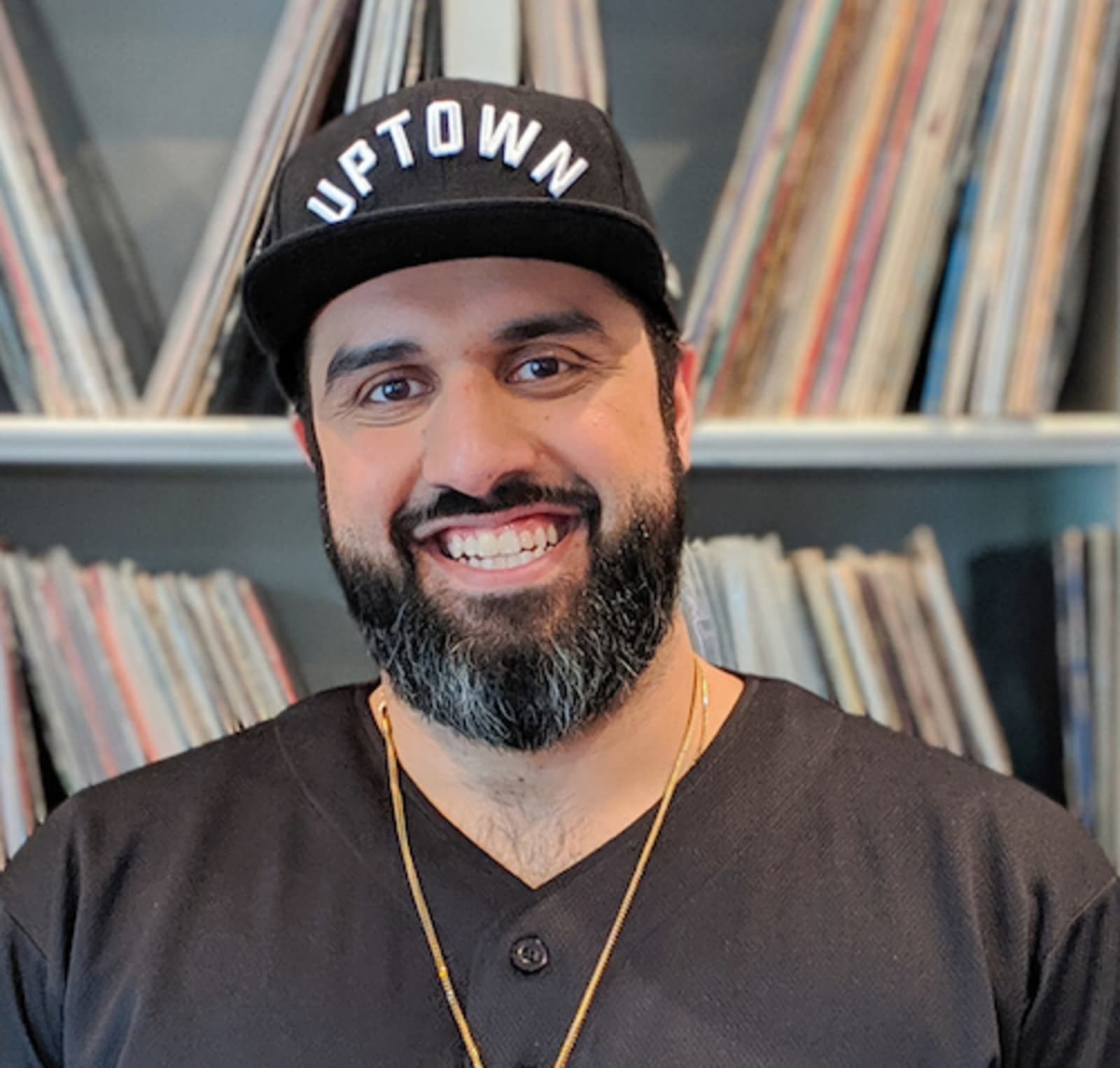
The original name for Manveer Heir's new game studio that focused on stories of people of color was Big Mouth Games.
The former BioWare and Raven Software designer embraces his loudness. For years, he has called out other studios, his own employers and attendees of the Game Developers Conference for their lack of understanding about race. Now, he's going from talking to fixing it himself. He's putting his money where his considerable mouth is.
"I just felt like in the AAA industry, I couldn't be myself, and really talking to all the black and brown people I know, they can't be themselves," said Heir. "So I'm going to start my own company that focuses on our communities, make games that are centered on our stories and cultures."
Heir grew up in the suburbs of Maryland and, as an Indian-American, feels he existed as a kind of racial chameleon -- neither black nor white, learning to code switch. When he was in college at Virginia Tech, he'd experience post-9/11 racism. After graduating, Heir worked on the 2009 Wolfenstein reboot at Raven as well as Mass Effect 3 at BioWare, in spaces where he was often the minority, he said. He left BioWare in 2017 and started Brass Lion shortly after. "I just got sick of waiting for everybody else to do it," he said.
But it turned out Netflix was already using the name "Big Mouth" for its animated puberty comedy. So Heir called the studio Brass Lion Entertainment, and brought on co-founders Rashad Redic and Bryna Dabby Smith. The studio has an explicit focus on telling authentic underrepresented stories not just relating to race, but age, religion, sexuality, Heir said. It aims not to be another small indie outfit, but a mainstream, mid-level, million-copies-sold kind of game developer. "I don't have enough time on this earth to wait for 2,000, 5,000 copies [sold] to shift things," said Heir.
"I just got sick of waiting for everybody else to do it."
One of the ironies of gaming in the US is that black and Hispanic adults play games at higher rates than white adults, and women make up 46 percent of gamers. Yet 71 percent of game developers identify as male and 81 percent as white. Recent years have seen a drive in other entertainment mediums to fund new narratives by people of color that still have mainstream appeal like Black Panther and Crazy Rich Asians. Yet games, for the most part, lag behind.
"The movie and TV industries are having this moment of recognition that 'Oh, actually telling diverse stories is not only a good idea, but it's big business,'" said Mitu Khandaker, co-founder of Glow Up Games, another new game studio in this space. "The same thing is absolutely not happening in games yet."
Glow Up, whose first project is yet to be announced, was founded by three women of color -- Khandaker, Latoya Peterson and Tara Mustapha -- and, like Brass Lion, wants to tell their stories. It intends to start by producing "ethical free-to-play games" on mobile, eventually expanding into console and PC titles.
"What we're focusing on more than anything is to tell joyful stories about characters of color," Khandaker said. "That's something that's absolutely missing. Just because we're telling stories about diverse characters doesn't mean it needs to be about their struggles."

The first game from Brass Lion is Corner Wolves -- an action-RPG set in mid-90s Harlem, in the thick of the government's war on drugs. The plot weaves hip hop, dealers and police, inspired by films like Spike Lee's Do the Right Thing, said Heir. Producer Just Blaze is signed on for the soundtrack, while Heir wants to include landmarks of the neighborhood, like Marcus Garvey Park and the Apollo Theater.
The protagonist of the game is a young Afro-Latina woman whose father is murdered. Neither Heir nor writer Evan Narcisse is Afro-Latina. So the plan is to workshop their writing with this demographic -- what bachata tracks would play in the streets, what posters would appear on a New York bedroom wall in that era in. Heir says they will look to real historical events in New York and Latinx history to weave into the narrative.
This brings out the advantage in a non-homogeneous team: Not that the workforce will already be experts on every community, but that they'll have a stronger awareness of each other's blind spots: they'll know what they don't know. "A diverse team is a little bit more uncomfortable, but that means you have uncomfortable discussions upfront," Heir said. "Which means you actually end up talking through the hard stuff early."
It's not that race has never been tackled in big-budget gaming. Over the last decade, titles like Mafia III and Assassin's Creed III: Liberation notably featured biracial protagonists whose environments react to race. In the former, police are more responsive to crimes committed in the white neighborhoods of New Orleans than the black ones. In the latter, the heroine can code switch between slave and high society using different disguises.
But the idea of a studio centered on these issues -- and at the budget Heir is targeting -- is rare. In Corner Wolves, the idea will be to use RPG mechanics to simulate systems of oppression in interesting ways.
"I can create systems, but the systems are inherently flawed. And the only way to get through the game is to be complicit with those systems."
"I'm a systems and gameplay designer, right? So I think about the world in systems," said Heir. "The racism I care about changing is systemic."
For example, perhaps depending on your name, hairstyle or skin tone, people will talk to you differently. Perhaps you need money and can either work a boring, Shenmue-esque job for minimum wage in a racist environment, or choose to make 10 times the amount running drugs for people that you feel respect you more.
The trick is that in games you have "complicity through interaction," Heir said. You have to own your actions in the world in a way that even watching a show like The Wire -- which itself excelled at humanizing its subjects and fleshing out the systems that led them to make damaging decisions -- does not do.
"I can create systems, but the systems are inherently flawed. And the only way to get through the game is to be complicit with those systems," Heir said. "And so now, do you want to complete your goal, or do you want to be true to yourself? You don't get to do both necessarily."
The Corner Wolves game will be in development for years, but a narrative podcast introducing the characters and setting is due to launch this year on Luminary. Heir said he has ideas for comics, TV and film that could revolve around the Corner Wolves franchise, even while the game is its keystone.
"My goal is that an Activision, an EA, have to build units that compete with me, because [now they] need a minority-focused studio," said Heir. "And hopefully I'll still beat them afterwards because they won't know how to do it right, and I will."
Heir's actions may end up speaking louder than his words. But it seems he'll always have words, too.
Images: Brass Lion Entertainment
by: via https://www.AiUpNow.com/